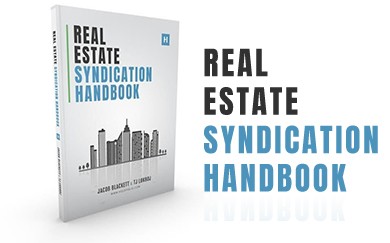When it comes to investing, there are a multitude of options to choose from. You can invest in the stock market, bonds, real estate, and more. So, how do you decide which option is right for you?
In this blog post, we will explore several different investment options and explain the pros and cons of each one. Let’s get started!
Table of Contents
Before Investing
Regardless of how much you have saved up for investing there are a couple of things to consider before you do.
Determine Financial Goals
If you’ve already surpassed the $1 million mark, you’ll need to think about your long-term financial objectives. Do you wish to amass a fortune of $2 million, $10 million, or even more? Or do you want to relax and take it easy? There are numerous tools available to assist you in achieving your financial objectives.
Pay off Personal Debt
Paying off debt provides the best return on investment. Pay off any high-interest loans, such as credit cards, first. A vehicle loan or school loan debt makes no sense if your net worth is more than $1 million.
Invest in an Emergency fund
If you have a million dollars, it may seem absurd to talk about an emergency fund, however, all emergency funds are relative. You’ll need one regardless of your financial situation. In your emergency fund, you should have enough money to cover three to six months’ worth of living expenses. This will protect you against unforeseen emergency bills and short-term income problems. Between you and your investments, an emergency fund functions as a buffer. A large portion of your emergency cash should be kept in a high-yield savings account.

Invest Towards Your Retirement Plan
Before you start making alternative investments, make sure your 401(k), IRA, or SEP-IRA retirement accounts are properly filled. Contributing the maximum amount to your retirement plan each year can provide you with a sense of security that there will be money there when you need it, as well as additional tax-free cash for real estate investment through a self-directed IRA.
Determine Your Investment strategy
What are your Investment Goals?
It is much easier to achieve your financial objectives if you have a clear aim in mind. You could wish to retire at a particular age, earn a certain amount so that you can reduce your working time, or quadruple your money in five years, for example.
What will be your investment timeline?
How long do you think it will take you to achieve your objectives? You may take greater risks with your investments if you have a larger scope, such as 20 or 30 years. This is because you’ll have more time to recover from any short-term losses.
If your investing horizon is shorter, such as five or ten years, you should be extra cautious. You may want a particular level of investment growth. However, capital appreciation may be your primary goal.
What is your Risk Tolerance?
Your risk tolerance refers to your readiness to take a loss in return for a bigger prospective profit. Younger investors, on the whole, are more ready to accept risks because they have more time to seek prospective rewards.
However, investment advice that is appropriate for someone else may not be appropriate for you. Understanding your personal risk and return tolerance will aid you in selecting the best investments for you. In this case, you should seek advice from your own adviser.
Real Estate Investment Properties
Some investors feel that owning rental properties is one of the finest things to buy if you have $1 million to invest and want diversity as well as excellent risk-adjusted returns. You can produce income and expand your investment money in real estate in three ways:
- Recurring cash flow generates passive income.
- Equity appreciation occurs when the value of a property rises over time.
- Deducting operations and business expenditures, as well as depreciation expenses, can help you lower your taxable net income.
You may invest in a variety of asset classifications, including residential, commercial, industrial, and land. Remote real estate investment is also possible with today’s technology, and it’s a wonderful alternative for investors who live in cities with a high-cost-of-living like New York or San Francisco.
If you invest in real estate online, you may identify low-cost property in locations with greater yields while leaving the day-to-day minutiae of property management to your local real estate team.
Because real estate may be leveraged or funded, your one million dollar investment might theoretically go further and create better profits while spreading out the risks.
Instead of spending $1 million on a tiny apartment complex in one location, you might invest in a far bigger portfolio of single-family homes in a number of high-growth cities throughout the country.

Real Estate Crowdfunding
Crowdfunding is when a big number of people pool their money to support a new business initiative, such as video game development, electric automobiles, television programs, or real estate ventures. One of the most appealing aspects of crowdfunding is that you may invest tiny amounts of your one million dollars in various industries and asset classes.
Real estate crowdfunding platforms, like Holdfolio, allow you to participate in high-quality assets like condominium buildings and new residential subdivisions, as well as debt investments through developer mortgages.
Accredited investors are frequently excluded from the most profitable crowdsourcing initiatives. The good news is that if you have $1 million to contribute, you’ll most certainly qualify as a high net worth accredited investor, allowing you access to crowdfunding investments that others don’t. While most crowdfunding platforms do not allow non-accredited investors to partake in crowdfunding deals, Holdfolio helps both new and seasoned investors to participate in exclusive crowdfunding deals.
Keep in mind, too, that many crowdfunding deals promise a large return in exchange for a high amount of risk. There’s no way of knowing when or even if a new building project will begin construction. Crowdfund investments may also be illiquid, meaning you won’t be able to purchase and sell them like you would stocks, bonds, or even traditional real estate.
REITs
Compared to crowdfunds, real estate investment trusts (REITs) are a safer and more secure alternative to invest in real estate.
REITs are funds that own and operate income-producing real estate such as office buildings, retail shopping centers, apartment buildings, and single-family homes. REITs are publicly traded on major stock exchanges and are established as funds that own and lease out real estate such as office spaces, retail shopping areas, apartment complexes, and single-family residences. You may also focus on specialty asset types like mobile phone tower locations, data centers, and self-storage sites with some REITs.
Because 75 percent of a REIT’s capital must be invested in real estate and 90 percent of net income must be returned to shareholders as dividends, buying shares of a REIT might be the next best thing to owning real estate directly.
REITs, on the other hand, do not have the same advantages as physically buying real estate, such as the ability to deduct investment business expenditures from taxable net income. Furthermore, because real estate investment trusts are shares, they may have a stronger link to broader stock market returns than direct property ownership. As a result, if the stock market falls, REIT share values may fall as well.
Stocks
Dividends and share price increases are two ways that stocks can create income. Diamondback Energy, The Williams Companies, and ConocoPhillips, according to Kiplinger.com reports from October 2020, have the highest dividend yields, with payouts of 4.9 percent or more. Keep in mind that certain high-yielding investments might also be high-risk.
Even without the aid of a Betterment Robo-advisor, investors who acquired shares in the S&P 500 four years ago have experienced gains of over 80%. The stock market, like any other market, may be extremely volatile. Over a four-year period, shares of the S&P 500 were acquired in 2016 and sold when the market bottomed out in March 2020 yielding a total return of only 3%.

Bonds
Many financial advisors feel that a classic balanced portfolio should contain 60% equities and 40% bonds. While specific equities like Amazon can give good growth (more on that later), buying bonds is mostly about capital preservation, particularly in today’s low-interest-rate climate. Bonds come in a variety of shapes and sizes, including corporate, municipal, and treasury bonds.
Bonds pay interest and have a full face value at maturity, but their price might fluctuate due to interest rate fluctuations. Bonds are frequently considered safe and secure investments, but they can lose value if you sell them for less than you bought them for or if the issuer fails to make their payments.
EFTs
Vanguard, for example, offers a wide range of exchange-traded funds (ETFs). They’re a wonderful way to get access to equities and bonds without needing to make particular investments.
ETFs invest in stocks, bonds, or index funds based on prominent indices such as the S&P 500, Nasdaq 100, or Russell 3000. You can also invest in certain industrial sectors such as software, medical, precious metals, foreign corporations, and real estate by purchasing shares of an ETF.
When you add an ETF to your investment portfolio, keep in mind that exchange-traded funds are meant to mirror, rather than beat, the performance of the market sector in which they invest.
Private Lending
Online platforms make private or peer-to-peer (P2P) financing extremely simple, while the risk is substantially greater than standard real estate transactions. However, depending on your risk profile, the potential gains from private lending may be enough to balance the risk if you invest small sums and don’t devote too much of your own resources to private and P2P lending.
Consumers can get private short-term loans for debt settlement or home improvements, while small companies can get private short-term loans to grow their firm, buy equipment, or buy real estate.
Yields can be significantly greater than those of traditional equities and bonds, making them a viable alternative to these traditional assets. Private loans, on the other hand, are less liquid because your money is typically locked up for several years.
Unless the loan is secured by an asset such as real estate, you also risk losing your money if the borrower fails. That’s why discussing the amount of money you plan to set aside for personal loans with your CFP or financial adviser is a smart idea.

CDs
Certificates of deposit (CDs) and money market accounts are two of the safest methods to generate a return while keeping your money accessible.
CD and money market account annual percentage yields (APY) are nearly equal to inflation, which means you won’t make any money on your savings.
On the bright side, they’re similar to having a deposit account and may be an excellent method to secure your money while keeping it liquid.
Invest in a Business
Purchasing stock or ETF shares is one option to invest in a company. However, many investors with a million dollars to invest choose to bypass the public market and invest directly in a company. Buying a business may be one of the most beneficial ways to invest your money if done right.
There are two primary methods for investing in a company. You may either acquire or create your own firm, or you can become a partner in an existing one. Starting your own company might be risky, but it can also pay you handsomely. Investing in an existing firm is less risky because the company already has a track record, but you must have total faith and confidence in the company.
In either case, purchasing and investing in the appropriate firm may outperform traditional assets like CDs, annuities, bonds, and stocks for a one-million-dollar investment.
Fixed-Rate Annuities
Fixed-rate annuities are a form of the insurance contract that offers to pay a set interest rate on the payments made to the account. They are sold by insurance companies.
They are not connected to the success of other assets and are meant to offer a reliable fixed-income source when payments commence.
Fixed annuities may be recommended by your financial advisor as a crucial allocation component of your retirement portfolio, but you’ll wind up paying an insurance company a premium for the risk reduction. Yields are higher than those offered by a US Treasury bond or CD.
However, the rates on A-rated or better-fixed annuities are roughly equal to the rate of inflation, which indicates that investing in a fixed rate annuity is effectively breaking even.
Final Thoughts
A diversified portfolio and hedging against economic volatility such as inflation are two crucial factors when learning how to invest a million dollars securely. As a result, we recommend that you invest in real estate.
Real estate investments provide you with a tangible asset that grows in value over time, therefore safeguarding your money from inflation. Real estate also has a low connection with the stock market, so if you’re already invested in stocks, adding real estate to your portfolio can help you diversify your portfolio during economic downturns.
Holdfolio is a private online real estate investing platform based on the idea of forming partnerships to invest in multifamily properties. Holdfolio, like any other crowdfunding platform or site, allows a group of people to pool their money to invest in a single project.
Call us at 866-206-8933 today to start investing in exclusive real estate deals and grow your wealth!
 Back to Blog
Back to Blog




